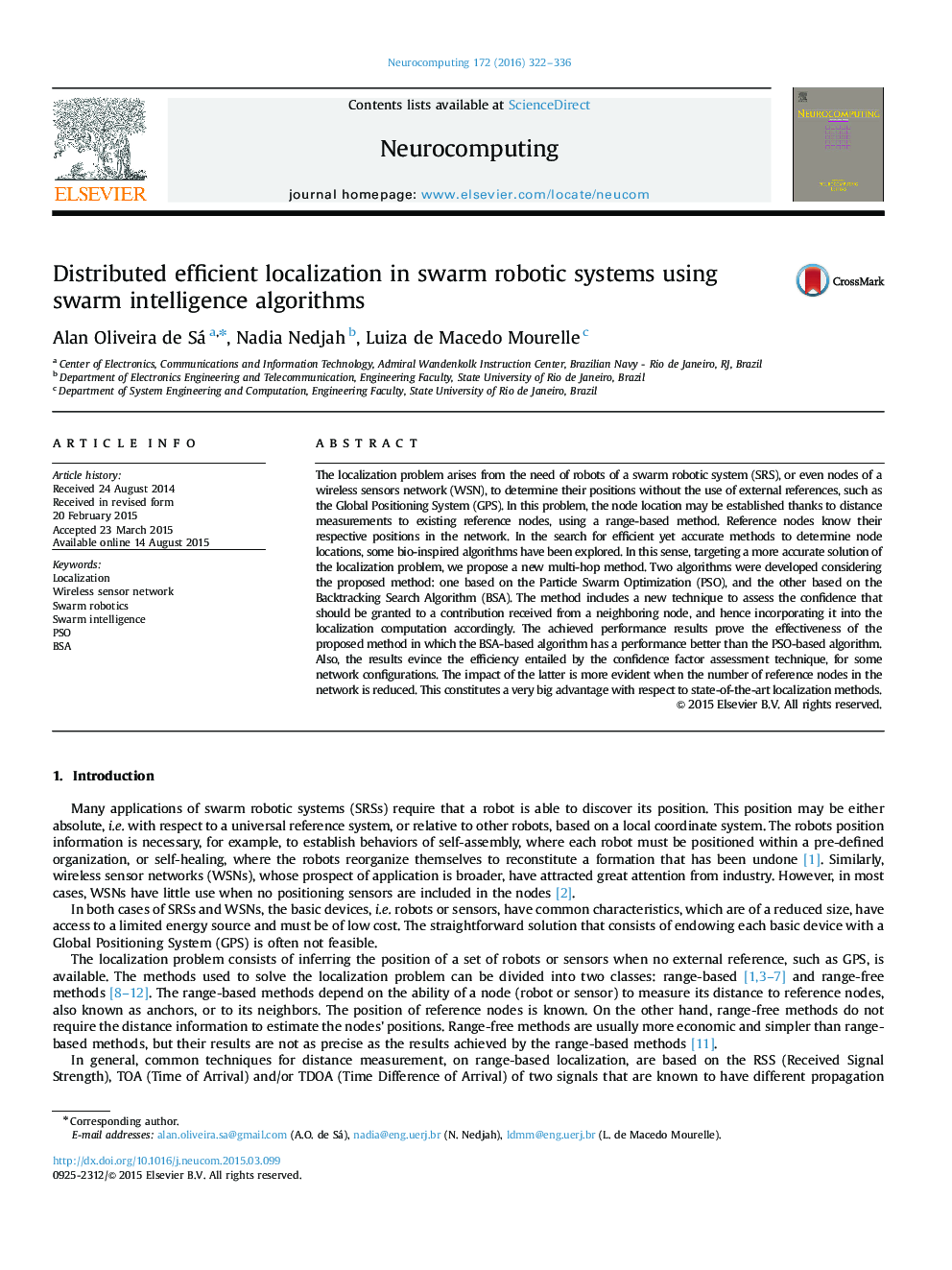| Article ID | Journal | Published Year | Pages | File Type |
|---|---|---|---|---|
| 409038 | Neurocomputing | 2016 | 15 Pages |
The localization problem arises from the need of robots of a swarm robotic system (SRS), or even nodes of a wireless sensors network (WSN), to determine their positions without the use of external references, such as the Global Positioning System (GPS). In this problem, the node location may be established thanks to distance measurements to existing reference nodes, using a range-based method. Reference nodes know their respective positions in the network. In the search for efficient yet accurate methods to determine node locations, some bio-inspired algorithms have been explored. In this sense, targeting a more accurate solution of the localization problem, we propose a new multi-hop method. Two algorithms were developed considering the proposed method: one based on the Particle Swarm Optimization (PSO), and the other based on the Backtracking Search Algorithm (BSA). The method includes a new technique to assess the confidence that should be granted to a contribution received from a neighboring node, and hence incorporating it into the localization computation accordingly. The achieved performance results prove the effectiveness of the proposed method in which the BSA-based algorithm has a performance better than the PSO-based algorithm. Also, the results evince the efficiency entailed by the confidence factor assessment technique, for some network configurations. The impact of the latter is more evident when the number of reference nodes in the network is reduced. This constitutes a very big advantage with respect to state-of-the-art localization methods.
